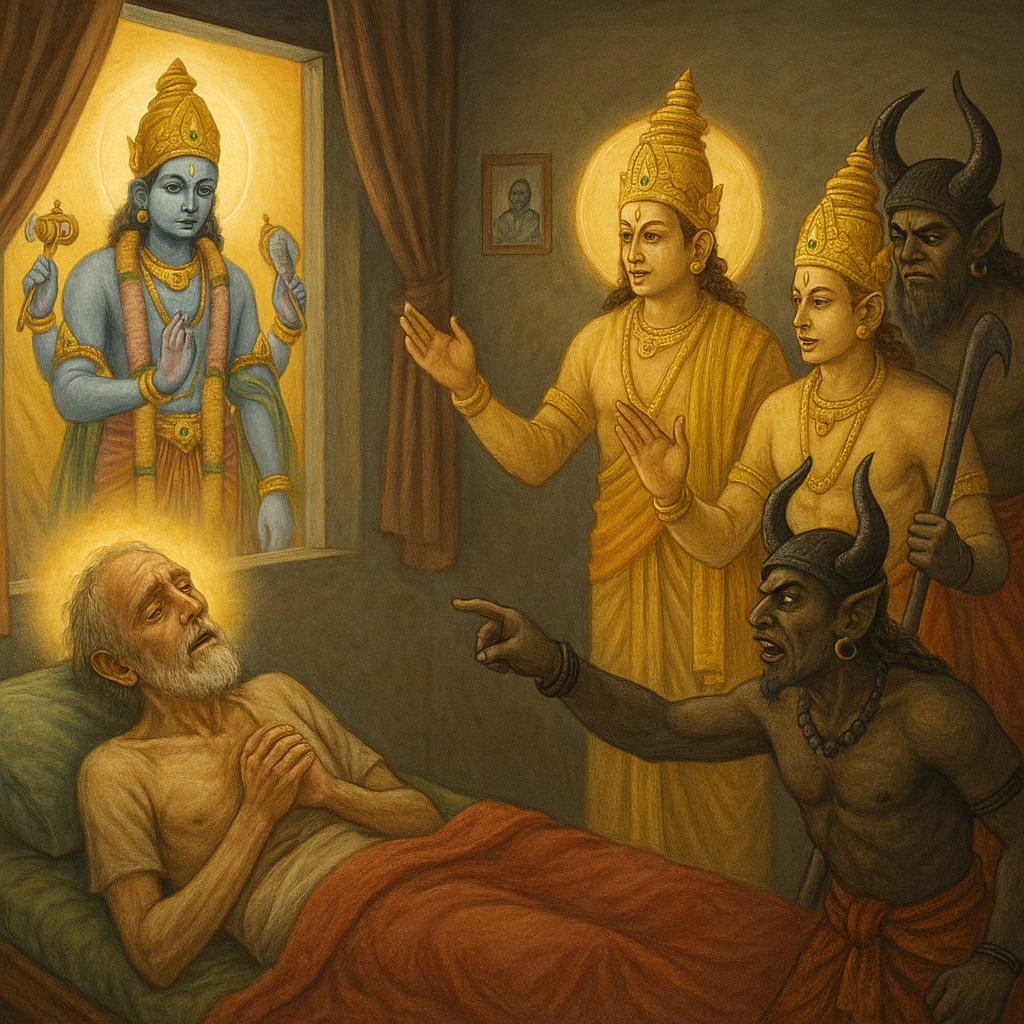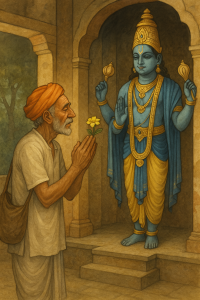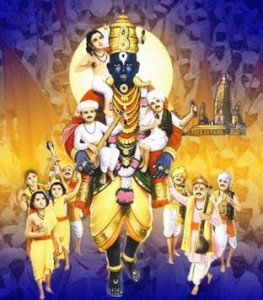In a city once ruled by pious kings, there lived a man who was deeply entangled in worldly life. Though born in a respectable family, he had given himself to sinful pleasures—drinking, gambling, lying, cheating, and consorting with immoral company. He had no interest in dharma, no reverence for saints or scriptures, and never performed any religious duties.
Despite repeated counsel from elders and friends, he continued to waste his life in the pursuit of sense enjoyment. His heart had become hardened, and he even mocked spiritual people, laughing at those who worshipped the Lord.
Time passed, and old age came suddenly upon him. His body became weak, his mind dull, and his senses no longer gave pleasure. He lay in bed, helpless and wracked with pain, unable to speak clearly or move without help. Death was fast approaching.
One evening, as his final hour drew near, a group of Vaiṣṇavas passed by his house on their way to a nearby temple. As they walked, they sang loudly the names of the Lord:
“Nārāyaṇa! Govinda! Rāma! Mādhava! Hari!”
The vibrations of those divine names entered through the window and reached the ears of the dying man. Though he had never chanted these names himself, hearing them triggered a spark within his heart.
In that moment of clarity amidst pain, he murmured faintly, “Hari… Nārāyaṇa…” and shed a tear.
And then—he breathed his last.
At once, two sets of divine messengers appeared at his bedside. The Yamadūtas, servants of Yamarāja, came to take the sinful soul for judgment. But simultaneously, Viṣṇudūtas, radiant and effulgent, arrived, shining with the brilliance of a thousand suns.
A dispute arose between the two parties.
The Yamadūtas argued, “This man was a sinner. He never worshipped the Lord, never chanted His names, never gave in charity, never kept fasts. He deserves punishment in hell for his misdeeds.”
The Viṣṇudūtas responded calmly, “It is true that his life was spent in sin. But in the final moment of death, with sincerity and pain in his heart, he remembered the Lord’s name—‘Hari’ and ‘Nārāyaṇa’. That single moment of remembrance has burned the sins of many lifetimes. He is now purified.”
The Yamadūtas were silenced, unable to counter this eternal truth.
The Viṣṇudūtas then gently lifted the soul of the man and carried him upward—not to punishment, but to Vaikuṇṭha, the abode of the Supreme Lord, where he was welcomed and embraced.
There, free from all karmic bonds, he began a new life of eternal service in blissful devotion.
Lessons from This Story:
- The holy name of the Lord, even remembered once at the moment of death, can purify all sins.
- The Lord’s mercy surpasses all material justice; His compassion flows freely to one who calls sincerely, even once.
- Never underestimate the power of kīrtana—hearing the Lord’s names, even accidentally, can transform destiny.
- The Lord accepts last-minute surrender, if it is genuine and heartfelt.
- This story emphasizes what the scriptures declare: “Ante nārāyaṇa-smṛtiḥ” – remembering Lord Nārāyaṇa at the end of life guarantees liberation (Bhāgavatam 2.1.6).


